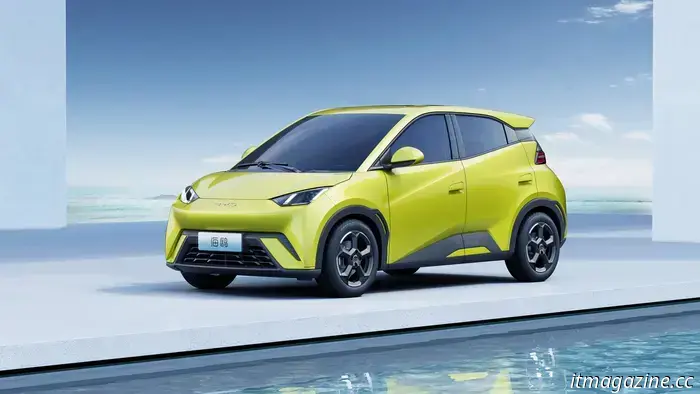
In May, BYD encounters significant competition in the electric vehicle market from Geely and Changan, alongside potential regulatory scrutiny.
BYD announced that it delivered 280,217 units of its Seagull budget electric vehicle, which starts at RMB 73,800 ($10,666), following its launch in late April last year.
Significant Chinese automakers Geely and Changan Automobile have reported substantial growth in electric vehicle sales for May, creating notable challenges for the leading manufacturer BYD, which has initiated a new round of price reductions and may face potential regulatory scrutiny in its home country.
Why it matters: These figures emerge after China’s top industry regulator pledged to enhance efforts to combat "involution-style" competition in the automotive sector, implementing measures such as random checks on product consistency and joint actions against unfair practices, as noted by the state-run Xinhua news agency. On May 31, China’s Ministry of Industry and Information Technology (MIIT) cautioned that recent chaotic price wars have severely disrupted normal operations and threatened the industry's sustainable development, according to a ministry official speaking to Xinhua.
Additionally, on the same day, the China Association of Automobile Manufacturers (CAAM) revealed that “a major carmaker” initiated recent price cuts on May 23, causing what they described as market panic. BYD announced a selective price reduction of up to RMB 53,000 ($7,372) for its electric vehicles on that date, as reported by TechNode.
Details: On June 1, BYD reported May sales of 376,930 passenger electric vehicles, marking a 14.1% increase year-over-year but showing nearly stagnant growth compared to April. In contrast, Geely and Changan experienced year-on-year increases in EV sales of 135% and 70%, respectively.
Geely attributed its record sales last month partly to strong performances from its small hatchback, the Xingyuan, a rival to BYD’s Seagull, with over 200,000 units delivered within 200 days of launch. Geely’s premium lines, Lynk & Co and Zeekr, also showed solid growth during this time.
State-owned Changan reported a 70% rise in EV sales compared to the previous year, totaling 94,828 units in May. Notably, sales from its mainstream EV brand Deepal increased by 78% year-on-year to 25,521 units, while deliveries for its premium brand Avatr surged 179% annually to 12,767 units during the month.
Stellantis-backed Leapmotor has emerged as the leading EV startup for the third consecutive month, reporting deliveries of 45,067 units in May, a 148% increase from the prior year. The affordable, extended-range hybrids C10 and C11 have contributed to the ongoing momentum of the Hong Kong-listed company.
Context: Retail sales of passenger new energy vehicles (NEVs) in China, which include all-electric and plug-in hybrid vehicles (PHEVs), are predicted to rise by 24% year-on-year and 8.3% month-on-month, reaching 980,000 units, according to estimates from the China Passenger Car Association (CPCA). The market experienced slowed growth towards the end of the month following the five-day Labor Day holidays, as stated by the CPCA.
READ MORE: Great Wall Motor’s CEO voices concerns about BYD's unfair competition
Jill Shen is a technology reporter based in Shanghai, focusing on Chinese mobility, autonomous vehicles, and electric cars. Connect with her via email: [email protected] or on Twitter: @jill_shen_sh.

Other articles
 Experts caution that startups require a 'well-defined route' into the UK's new defense strategy.
Insiders warn that Britain's new military technology strategy will not succeed unless startups are provided with clear routes to adoption.
Experts caution that startups require a 'well-defined route' into the UK's new defense strategy.
Insiders warn that Britain's new military technology strategy will not succeed unless startups are provided with clear routes to adoption.
 How NATO is turning to startups to stay ahead of its competitors.
We had a conversation with the COO of DIANA, NATO's defense technology accelerator, regarding how the Alliance is leveraging dual-use technology to succeed in future conflicts.
How NATO is turning to startups to stay ahead of its competitors.
We had a conversation with the COO of DIANA, NATO's defense technology accelerator, regarding how the Alliance is leveraging dual-use technology to succeed in future conflicts.
In May, BYD encounters significant competition in the electric vehicle market from Geely and Changan, alongside potential regulatory scrutiny.
The numbers follow a commitment from China's leading industry regulator to enhance efforts to curb "involution-style" competition within the nation's automotive sector.
